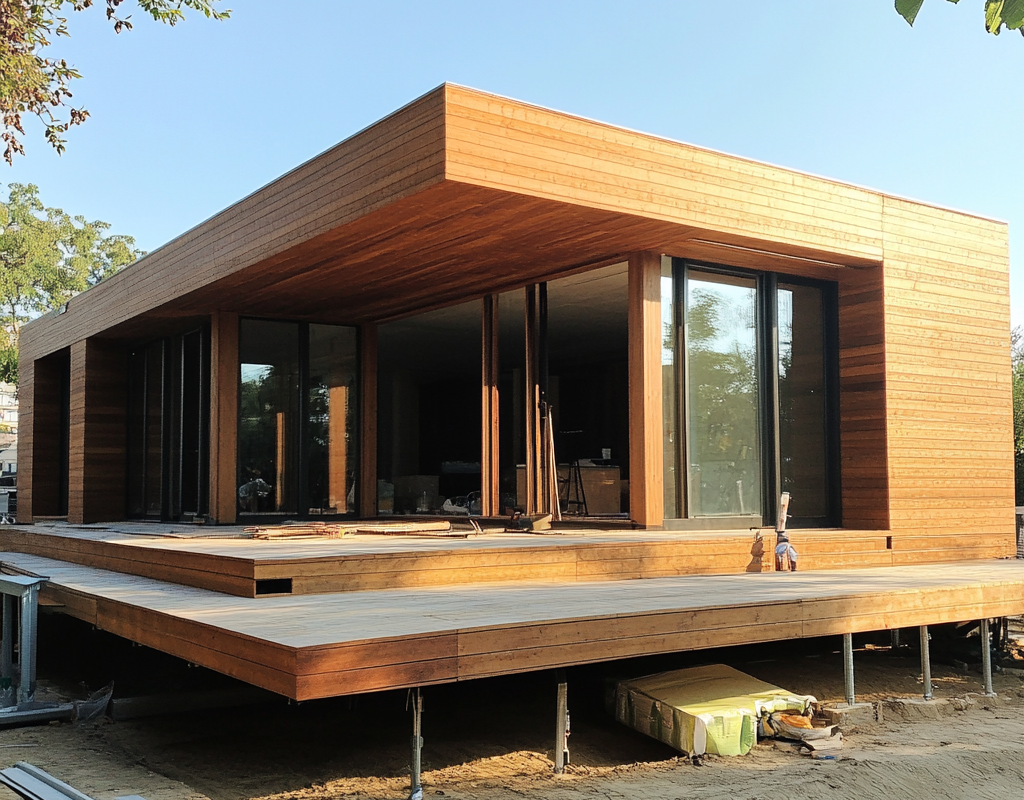Understanding sustainable construction and its importance
Sustainable construction is an approach to the creation of buildings that takes into account environmental, economic and social aspects at all stages of the life cycle of an object: from design to operation and disposal. The main goal of sustainable construction is to minimize the negative impact on the environment, reduce the use of resources and ensure comfortable and safe living for people.
Agencies involved in promoting sustainable construction play a key role in popularizing this approach. They help shape public opinion about the importance of environmentally friendly and energy-efficient solutions, develop strategies for the introduction of innovative technologies and contribute to the transition of the market to more sustainable construction methods. Understanding the role of such agencies is becoming an important element in achieving global goals for environmental protection and sustainable development.
The role of agencies in educational activities
One of the most important functions of agencies for the promotion of sustainable construction is educational activities. Agencies conduct seminars, trainings, webinars and conferences aimed at raising awareness of the principles and benefits of sustainable construction among developers, architects, engineers and end users. Training specialists in this field helps to introduce new environmental technologies faster and improve the quality of construction.
Information support plays an important role in the development of the eco-real estate market, as it helps to eliminate myths and misconceptions associated with the cost and complexity of implementing sustainable technologies. Agencies also create educational materials such as articles, guides and videos that explain why sustainable construction is an important step in the fight against climate change and how it can improve people’s quality of life.
Formation and promotion of environmental standards
Agencies play an important role in the development and promotion of environmental standards in construction. They participate in the creation and implementation of norms and requirements that define which materials and technologies are considered environmentally safe and energy efficient. These standards help to establish clear criteria for assessing the sustainability of buildings and encourage developers to use innovative solutions.
Examples of such standards are international certification systems such as LEED (Leadership in Energy and Environmental Design) and BREEAM (Building Research Establishment Environmental Assessment Method). Agencies promote the dissemination of these standards by helping companies meet high requirements and obtain appropriate certificates. Thus, they contribute to improving the quality of construction and increasing environmental responsibility in the industry.
Promoting investments in sustainable projects
One of the key tasks of the agencies is to attract investments in sustainable construction projects. They develop strategies and business models that demonstrate the benefits and prospects of investing in environmentally friendly buildings. Sustainable facilities attract the attention of not only end users, but also investors interested in long-term income and minimizing risks.
Agencies conduct market analyses, assess the potential and cost-effectiveness of sustainable projects, which helps to attract financing from private and public investors. They also contribute to the creation of partnerships between developers, banks and other financial institutions that are willing to invest in environmentally friendly and energy efficient solutions.
Cooperation with developers and suppliers
The success of sustainable construction largely depends on the cooperation of agencies with developers and suppliers of building materials. Agencies help establish links between all market participants to ensure the use of environmentally friendly and certified materials. This collaboration helps to reduce costs and improve the quality of construction, making sustainable technologies available to a wider range of consumers.
Agencies also promote the introduction of innovative technologies on construction sites, facilitate the exchange of experience and best practices between developers. Thanks to this interaction, it is possible to quickly adapt sustainable solutions to the requirements of the modern market and make them more efficient and cost-effective.
The influence of agencies on public policy and legislation
Agencies for the promotion of sustainable construction work closely with government agencies to support eco-friendly building practices. Their activities include:
- Development of Legislative Initiatives: Agencies collaborate with government bodies to create regulations that encourage the use of energy-efficient technologies and minimize environmental impact in construction projects.
- Influence on Public Policy: They represent the interests of sustainable construction at the legislative level, proposing measures that stimulate investment in eco-projects and support research and development in eco-technologies.
- Creating Favorable Conditions: Agencies advocate for a supportive legislative environment that promotes the growth of the eco-real estate market and creates better opportunities for sustainable development.
- Acceleration of Sustainable Construction: Cooperation with government agencies helps to accelerate the shift towards eco-friendly construction models, establishing guidelines that protect the environment.
- Shaping the Industry: Agencies play a crucial role in fostering an environmentally responsible construction industry and ensuring its sustainable growth for the future.
Q&A
Sustainable construction is an approach to building that considers environmental, economic, and social aspects at every stage of a building’s life cycle. Its main goal is to minimize environmental impact, reduce resource use, and provide safe, comfortable living conditions. This approach is crucial for protecting the environment and achieving global sustainability goals.
Agencies conduct seminars, trainings, webinars, and conferences to raise awareness about sustainable construction among developers, architects, and engineers. They also create educational materials like guides and videos to clarify the benefits and dispel myths about sustainable construction.
Agencies are involved in creating norms and standards that define environmentally safe and energy-efficient building practices. They promote international certification systems like LEED and BREEAM, helping companies achieve high standards and obtain relevant certifications.
Agencies develop business models that highlight the benefits of investing in eco-friendly buildings. They conduct market analyses, assess project viability, and create partnerships with financial institutions, which helps attract investment for sustainable projects.
Agencies facilitate connections between developers and suppliers of eco-friendly materials, promote the use of certified products, and help introduce innovative technologies. This collaboration aims to reduce costs, improve construction quality, and make sustainable solutions more widely accessible.




